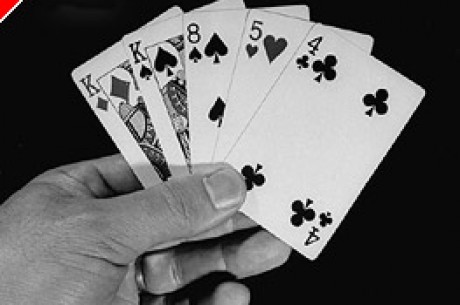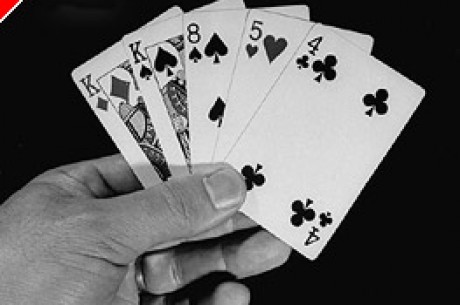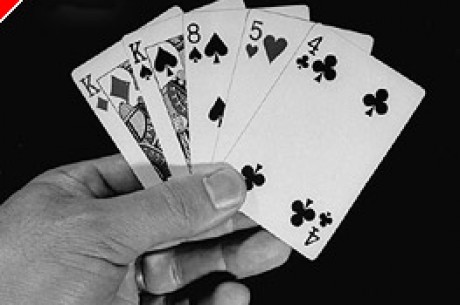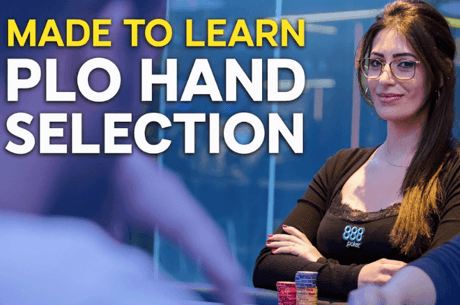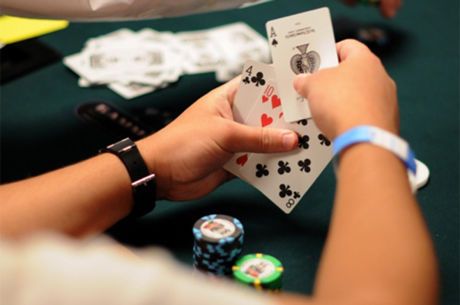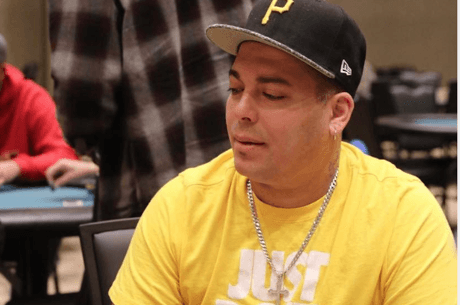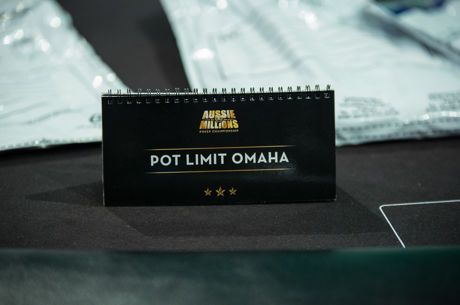Introduction to Omaha - Set For Danger
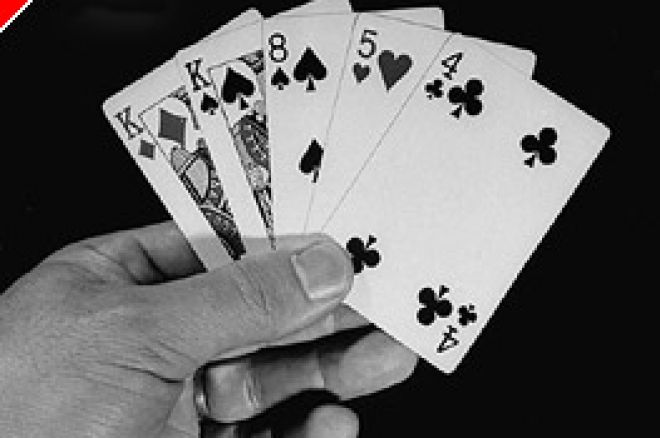
Tony is a regular on-line and card room player living in England. He mostly plays Texas Hold'em and Omaha (High and Split) at fixed, pot and no limit, at both cash and tournament tables.
Introduction
One of the great causes of wallet damage to a new player at Omaha High is over-estimating the power of the set - three of a kind, especially when it hits them on the flop with a pair in the hole cards.
So many players coming into the game from Texas Hold'em find it difficult to adjust the mindset which thinks a set is a likely winning hand but it is an adjustment that is needed to be made quickly to avoid severe financial pain.
Aim for the top
The problem with a set in Omaha High is that it is unlikely by itself to win at a full table unless it can improve to a full house or quads. That is a 7-outer after the flop and a 10-outer after the turn (assuming no result on the turn). All told, that is not necessarily offering great pot odds if you are playing pot limit and you have to call a pot raise on the flop. Your decision may then revolve around the texture of the flop - does it look like it could have made your opponent a made straight or is your set leading at this point because the flop is spread out in different suits - like 2s 7d Qc - and you hold Qd Qh x x?
This hand would be a good reason to re-raise the pot and look to take it down there and then. However, what if you had 7c 7h x x instead? You may initially think the flop is good news but it could also be a pit of snakes you are about to jump into.
What can be beating you? Someone with Q Q x x. That is all so can you justify weighing in with a pot re-raise? What hand might come with you here?
The main problem is Q Q x x. You probably have to fold for that possibility alone unless you know the player to be a loose cannon or serial raiser. Anyone with a Q 7 x x or Q 2 x x or 7 2 x x hand would hold a 2-pair but these are very poor hands to call a pot re-raise with. Those players may take the view that the pot-raiser might only have A A x x or K K x x in which case the 2-pairs are leading. However, in Omaha you have to "fear the nuts" and thus it should be an easy decision for the holders of a 2-pair to fold when faced with a pot re-raise.
So, holding 7 7 x x with a Q 7 2 rainbow flop may justify a raise but you are jumping in without a safety net. The types of hand likely to call you, assuming no-one has Q Q x x, are the A A and K K hands and also those with K J 10 9 type hands. None of these can be considered judicious calls because they need improvement from both cards still to come.
If you are to play a prudent game of Omaha, then you need to go easy with 7 7 x x in the above circumstances. You probably won't get paid off by lesser hands but will be called by the hand that beats you. Therefore, don't raise. In all probability, you should fold if you don't think the player is loose. I will often limp in with a hand like Q Q 9 8 because it is lacking much strength and needs to draw heavily on the flop. How pleased I would be to see a flop of Q 7 2 and for an opponent to raise the pot ahead of me when I hold the temporary nuts!
I can say with confidence that I would in future fold with a middle set when faced with a pot raise because I suffered a sucker punch loss of a big pot when my set of J J x x with an A J 7 flop walked into a hand of A A x x after there had been no raises pre-flop. I had taken the limping to mean there was no A A x x hand around and got too confident even when I was re-raised. I had been truly outflanked by a well-disguised limp!
Other set traps
You will therefore do yourself a great favour not getting over-excited about flopped sets if they are not top set. Of course, if you are playing limit stakes, flopping a set takes on a different outlook. At limit, it might be that most of the table are still with you and you have a lower limit bet still to come. Pot odds tells you that a call of a raise is a sensible move - you are getting good value if, in a $1/$2 game, you are calling a $2 raised bet when there is already $15 or more in the pot.
You have something like a 35% chance of striking a full house or better while the pot is offering far more for your $2 bet. Depending on how many contribute bets after the turn, you are probably still justified in calling another bet provided there are no re-raises ahead of you which might cramp the odds. However, if re-raises take place after the flop, your middle set looks less likely to succeed by the second.
So far, I have assumed a very friendly flop. When the flop comes down with two of the same suit and cards that are closely related to each other, it becomes a comparison of odds. What is the likelihood of making the full house and, if achieved, will it be the best full house at showdown?
If your set on the flop is not top set, you open yourself to betting out with an inferior full house, one where the main part of the hand is a lower denomination than the subordinate part, eg 9 9 9 Q Q. If you've achieved that by using a pair of 9's in your hole cards and Q 9 8 Q 5 on the board, the player or two players holding a Q might sneak a higher full house by matching one of their other three hole cards with a board card. An example is Q J J 5.
This scenario is far more likely in a limit game as Q J J 5 on a flop of Q 9 8 might not stand a pot raise in a pot limit game whereas it is more than likely a player will see the turn card with top pair in a limit stakes game.
Conclusion
Recent analysis of my pot limit Omaha play shows that two of my biggest losses occurred when I got caught cold with middle sets. I should not get into such a position but sometimes after a barren run of cards and constant pre-flop and post-flop folding, the sight of a made set at the flop seems to take on the properties of a homecoming lantern. All I can say is take the greatest care not to over-extend your betting with a set.
If truth be told, you could do much worse than fold any set on a flop that is not a top set!
16 November 2005
Ed Note: WPT host Mike Sexton proudly endorses Party Poker ...Can the Ambassador of Poker be wrong?

